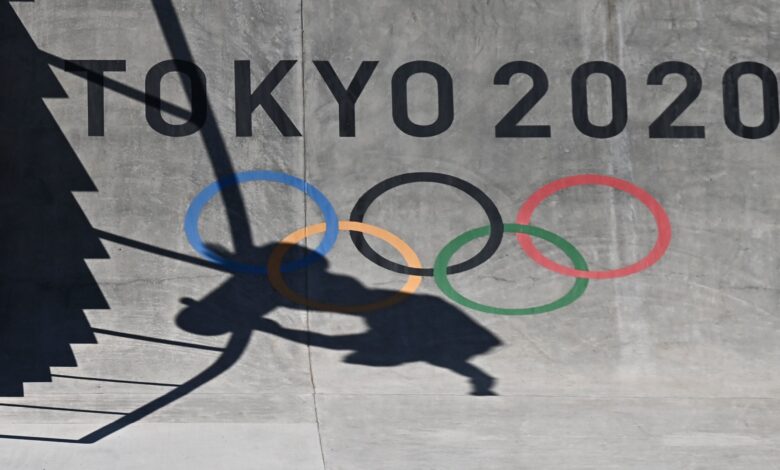https://finanzasdomesticas.com/peso-economico-juegos-olimpicos-tokio-2020

https://finanzasdomesticas.com/peso-economico-juegos-olimpicos-tokio-2020 The economic burden of the Tokyo 2020 Olympics has been heavier than expected for Japan. Originally planned as a shining moment for Japan’s recovery and technology, the Olympics have turned into a financial challenge. The games, initially budgeted at $7.3 billion, have seen costs soar to over $22 billion due to delays and pandemic-related issues.
The unexpected weight of the economic burden has shown that the Tokyo 2020 Olympics are costing Japan far more than planned. With the pandemic disrupting global events, the expected boost from international tourism hasn’t happened, leaving Japan to bear a heavy financial load.
https://finanzasdomesticas.com/peso-economico-juegos-olimpicos-tokio-2020:Understanding the Economic Burden of the Tokyo 2020 Olympics
The economic burden of the Tokyo 2020 Olympics has become a huge challenge for Japan. When Japan first planned these games, they hoped it would bring lots of benefits. Sadly, things didn’t go as expected. The original budget was $7.3 billion, but costs have now climbed to over $22 billion.
Costs rose because of unexpected delays and the impact of COVID-19. The pandemic caused many changes, including the postponement of the Olympics by one year. This delay led to extra expenses, making the economic burden even heavier https://finanzasdomesticas.com/peso-economico-juegos-olimpicos-tokio-2020.
Japan expected big boosts from tourists, but this didn’t happen. Many visitors stayed away due to travel restrictions and health concerns. Therefore, the economic benefits from the games were much less than hoped.
Overall, the Tokyo 2020 Olympics have put a heavy financial strain on Japan. The costs are much higher than planned, and the benefits are not as great as anticipated.
Why Did the Cost of Tokyo 2020 Rise So Much
The rise in the cost of Tokyo 2020 is mainly due to delays and the pandemic. Originally, the games were planned to be held in 2020, but COVID-19 forced a delay to 2021. This one-year delay added extra costs, making the economic burden even heavier.
Many expenses increased because of new health and safety measures. To keep everyone safe, more money had to be spent on things like sanitizing and testing. These added costs were not in the original budget.
Another reason for the cost increase was the need for more infrastructure. Japan had to build or upgrade several facilities to meet new requirements. This also contributed to the rising expenses.
The higher costs of the Tokyo 2020 Olympics show how unpredictable big events can be. The economic burden grew because of unexpected changes and the need for extra safety measures https://finanzasdomesticas.com/peso-economico-juegos-olimpicos-tokio-2020.
https://finanzasdomesticas.com/peso-economico-juegos-olimpicos-tokio-2020:How COVID-19 Impacted the Economic Burden of the Tokyo 2020 Olympics
COVID-19 had a huge impact on the economic burden of the Tokyo 2020 Olympics. The pandemic forced the games to be postponed from 2020 to 2021. This delay caused extra costs that weren’t planned for.
The pandemic also meant fewer international visitors. Japan hoped to attract lots of tourists, but travel restrictions made this impossible. As a result, the expected boost from tourism didn’t happen.
Extra expenses also came from new health protocols. Japan had to spend more money on things like testing, sanitizing, and keeping athletes safe. These extra costs added to the overall economic burden.
In summary, COVID-19 significantly increased the economic burden of the Tokyo 2020 Olympics. The extra costs from the delay and new health measures were a big part of the problem https://finanzasdomesticas.com/peso-economico-juegos-olimpicos-tokio-2020.
The Unforeseen Financial Strain of Tokyo 2020
The unforeseen financial strain of Tokyo 2020 was much more than anyone expected. The original budget for the games was $7.3 billion. However, costs quickly rose due to the pandemic and other issues.
Unexpected delays and changes led to many extra costs. Building new facilities and upgrading existing ones added to the financial strain. The pandemic also required more spending on health and safety measures https://finanzasdomesticas.com/peso-economico-juegos-olimpicos-tokio-2020.
Japan hoped that hosting the Olympics would bring economic benefits, but this didn’t happen as planned. The lack of international visitors and the high costs of running the games created a heavy financial burden.
Overall, the financial strain from Tokyo 2020 was much greater than anticipated. The pandemic and other issues caused costs to rise well above the original budget.
https://finanzasdomesticas.com/peso-economico-juegos-olimpicos-tokio-2020:Breaking Down the Economic Burden of the Tokyo 2020 Olympics
Breaking down the economic burden of the Tokyo 2020 Olympics shows just how costly it has been. The initial budget was set at $7.3 billion, but costs surged to over $22 billion. The extra expenses were mainly due to delays and pandemic-related changes https://finanzasdomesticas.com/peso-economico-juegos-olimpicos-tokio-2020.
The delay of one year alone added significant costs. Japan had to pay for extended use of facilities and other services. The pandemic also increased spending on health measures like testing and sanitizing.
Furthermore, Japan missed out on the expected revenue from tourists. With fewer visitors coming to the games, the economic boost wasn’t as big as hoped. This added to the financial strain on the country.
In summary, the economic burden of the Tokyo 2020 Olympics was far greater than planned. Delays, health measures, and reduced tourism all contributed to the rising costs.
Tokyo 2020: From Dream Event to Economic Challenge
Tokyo 2020 started as a dream event for Japan but turned into an economic challenge. The games were meant to showcase Japan’s recovery and technological advancements. Instead, they have caused significant financial strain https://finanzasdomesticas.com/peso-economico-juegos-olimpicos-tokio-2020.
The original budget was $7.3 billion, but costs increased dramatically due to delays and the pandemic. The postponement of the games added extra expenses that were not in the original plan.
Japan also faced challenges with reduced international tourism. The expected influx of visitors did not happen, leading to fewer economic benefits. This added to the overall financial burden.
The shift from a dream event to an economic challenge highlights the unpredictability of hosting major events. Tokyo 2020 shows how quickly plans can change and costs can rise https://finanzasdomesticas.com/peso-economico-juegos-olimpicos-tokio-2020.
https://finanzasdomesticas.com/peso-economico-juegos-olimpicos-tokio-2020:How Japan is Handling the High Costs of Tokyo 2020
Japan is handling the high costs of Tokyo 2020 by finding ways to manage the financial strain. The original budget for the games was $7.3 billion, but costs have risen to over $22 billion. To deal with this, Japan has had to make some adjustments.
One way Japan is managing costs is by reducing expenses where possible. This includes cutting back on non-essential spending and focusing on necessary health measures.
Additionally, Japan is looking for new revenue sources to offset the costs. This includes exploring sponsorships and other financial support to help cover the increased expenses.
Overall, Japan is working hard to handle the high costs of Tokyo 2020. By making adjustments and seeking new revenue sources, they hope to manage the financial burden https://finanzasdomesticas.com/peso-economico-juegos-olimpicos-tokio-2020.
Economic Burdens: Lessons from the Tokyo 2020 Olympics
The Tokyo 2020 Olympics have taught valuable lessons about economic burdens. The games were initially budgeted at $7.3 billion, but costs have soared due to delays and the pandemic. These lessons can help with future events.
One key lesson is the importance of planning for unexpected changes. The pandemic caused many unforeseen costs, highlighting the need for flexible budgets.
Another lesson is the impact of reduced tourism. Japan hoped for a big boost from international visitors, but this didn’t happen. Future events can learn from this to better estimate the financial benefits of tourism.
In summary, the economic burdens of Tokyo 2020 offer important lessons. They show the need for better planning and the impact of tourism on event budgets https://finanzasdomesticas.com/peso-economico-juegos-olimpicos-tokio-2020.
The Costly Reality of the Tokyo 2020 Olympics
The costly reality of the Tokyo 2020 Olympics has been a tough situation for Japan. The games were originally planned with a budget of $7.3 billion, but the costs have increased significantly https://finanzasdomesticas.com/peso-economico-juegos-olimpicos-tokio-2020.
The rise in costs came from several factors, including delays and new health measures due to COVID-19. Japan had to spend more on testing, sanitizing, and extending the use of facilities.
Additionally, Japan missed out on the expected boost from tourism. With fewer international visitors, the economic benefits were much less than hoped. This added to the overall financial strain.
Overall, the costly reality of Tokyo 2020 shows how challenging it can be to manage large events. The unexpected rise in expenses has put a heavy financial burden on Japan.
https://finanzasdomesticas.com/peso-economico-juegos-olimpicos-tokio-2020:Why the Economic Burden of the Tokyo 2020 Olympics Matters
Understanding why the economic burden of the Tokyo 2020 Olympics matters is important. The games have become a major financial challenge for Japan, with costs rising far above the original budget of $7.3 billion.
The increase in costs is mainly due to delays and the pandemic. Extra spending on health measures and facility upgrades has added to the financial burden.
The economic burden also matters because it affects Japan’s overall economy. With reduced tourism and increased expenses, the financial impact is significant. This can influence future decisions about hosting large events https://finanzasdomesticas.com/peso-economico-juegos-olimpicos-tokio-2020.
In summary, the economic burden of Tokyo 2020 matters because of its impact on Japan’s finances and future event planning. The rise in costs highlights the challenges of managing big events.
What Went Wrong with the Budget for Tokyo 2020
What went wrong with the budget for Tokyo 2020 is a big question. The original budget was set at $7.3 billion, but costs have skyrocketed. Several factors contributed to this problem.
First, the pandemic caused unexpected delays and increased expenses. Japan had to spend more on health measures and extend the use of facilities. These additional costs were not part of the original budget.
Second, the expected boost from tourism did not happen. Travel restrictions and health concerns kept many visitors away, reducing the economic benefits from the games https://finanzasdomesticas.com/peso-economico-juegos-olimpicos-tokio-2020.
Overall, the budget for Tokyo 2020 went wrong due to delays, increased spending, and lower tourism. These issues created a financial strain that was much greater than planned.
The Future of Tokyo’s Economy After the Olympics’ Financial Impact
The future of Tokyo’s economy after the Olympics’ financial impact is uncertain. The games were planned with a budget of $7.3 billion, but costs have soared to over $22 billion. This financial strain could affect Tokyo’s economy in several ways.
One impact is the need to recover from the high costs of hosting the games. Japan will have to manage the financial burden and find ways to support its economy. This may involve new financial strategies and adjustments.
Another impact is the effect on future events. The challenges faced by Tokyo 2020 may influence how other cities plan and budget for large events. Lessons learned from this experience could help improve future planning.
In summary, the future of Tokyo’s economy will be shaped by the financial impact of the Olympics. Recovery and future event planning will need to address the lessons learned from the costly experience of Tokyo 2020 https://finanzasdomesticas.com/peso-economico-juegos-olimpicos-tokio-2020.
Financial Impact of Postponing the Tokyo 2020 Olympics
The postponement of the Tokyo 2020 Olympics had a huge financial impact. Originally scheduled for 2020, the games were pushed to 2021 due to the COVID-19 pandemic. This delay resulted in a significant increase in costs.
When the games were postponed, Japan had to cover extra expenses that weren’t included in the initial budget. These included costs for keeping venues ready, maintaining security, and managing additional health and safety measures. All these costs quickly added up, making the financial burden much heavier than expected https://finanzasdomesticas.com/peso-economico-juegos-olimpicos-tokio-2020.
Moreover, the extension of contracts for venues and staff also contributed to the increased expenses. Facilities that were initially planned to be used for a short period now had to be maintained and managed for an extra year. This created additional financial pressure on the organizing committee and the Japanese government.
The postponement also meant that Japan missed out on the expected boost from tourism in 2020. With fewer international visitors coming in 2021 due to travel restrictions, the anticipated economic benefits did not materialize, adding to the financial strain. The combination of extended operational costs and reduced revenue from tourism turned the Tokyo 2020 Olympics into a much more expensive event than initially planned.
https://finanzasdomesticas.com/peso-economico-juegos-olimpicos-tokio-2020:How Health and Safety Measures Inflated the Costs of Tokyo 2020
Health and safety measures for the Tokyo 2020 Olympics significantly inflated costs. The pandemic made it crucial to implement extensive health protocols to ensure the safety of athletes, staff, and local residents. These measures were necessary but also expensive.
Japan had to invest heavily in testing, sanitizing, and other health-related procedures. This included setting up testing facilities, ensuring regular testing of athletes and staff, and increasing the frequency of cleaning and disinfecting venues. All these actions required substantial financial resources, which were not accounted for in the original budget https://finanzasdomesticas.com/peso-economico-juegos-olimpicos-tokio-2020.
Additionally, the implementation of strict health guidelines led to increased costs for managing facilities and controlling the spread of the virus. Social distancing measures, limited seating, and reduced capacity in venues all added to the expenses. Japan also had to provide personal protective equipment and other health supplies, further increasing the overall cost of the games.
These additional health and safety measures, while essential for managing the pandemic, placed a heavy financial burden on the Tokyo 2020 Olympics. The need to adapt to new health standards led to unexpected expenses that contributed to the overall increase in costs.
The Role of Decreased Tourism in the Financial Burden of Tokyo 2020
Decreased tourism played a significant role in the financial burden of the Tokyo 2020 Olympics. Japan had expected a large influx of international visitors, which would help offset the costs of hosting the games. However, the COVID-19 pandemic drastically reduced the number of tourists.
Travel restrictions and health concerns led to fewer visitors than anticipated. This decrease in tourism meant that Japan lost out on expected revenue from hotel bookings, dining, and other tourism-related activities. The absence of international visitors had a direct impact on the financial success of the event https://finanzasdomesticas.com/peso-economico-juegos-olimpicos-tokio-2020.
Conclusion
Tokyo 2020 faced a lot of financial challenges due to unexpected costs and delays. The pandemic made everything more expensive, from health measures to keeping the venues ready. Even though the games were exciting and successful in many ways, they also put a big strain on Japan’s economy.
Looking ahead, there are important lessons to learn from Tokyo 2020. Future events can benefit from careful planning and having extra money set aside for unexpected problems. By learning from these challenges, future Olympics and big events can be better prepared to handle any surprises that come their way https://finanzasdomesticas.com/peso-economico-juegos-olimpicos-tokio-2020.






